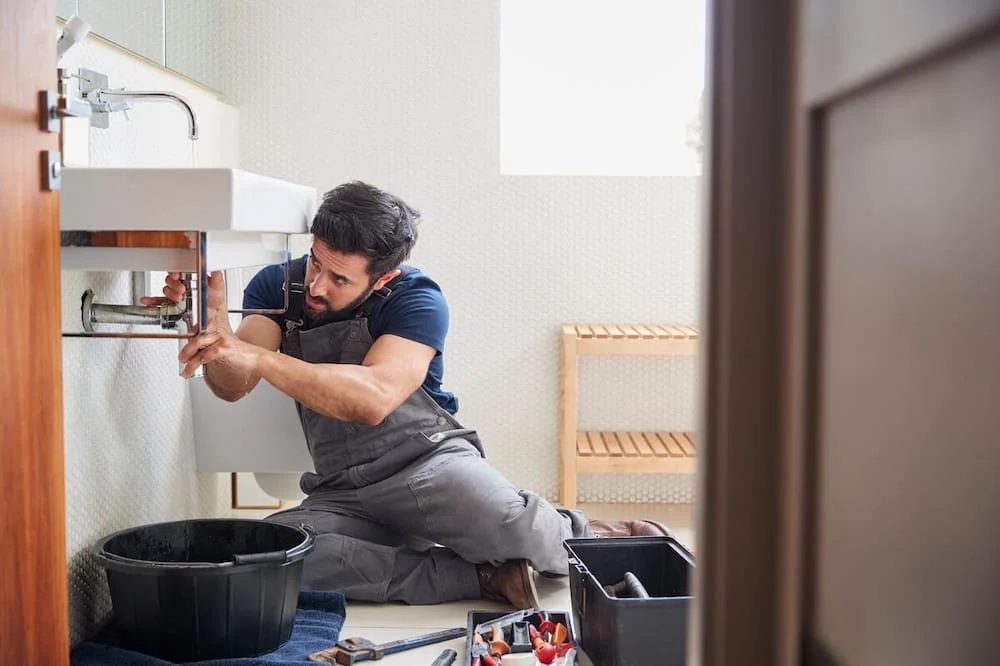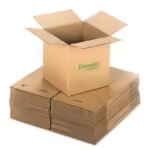Plumbing. It’s one of those things we often take for granted until something goes wrong. A dripping tap, a blocked drain, or worse – a burst pipe – can quickly disrupt our daily lives and leave us scrambling for solutions. Understanding the basics of your home’s plumbing system and knowing when to call in a professional can save you time, money, and a whole lot of stress. For those in need of reliable residential plumbing services, knowing what to expect is half the battle.
In this article, we’ll delve into the most common residential plumbing problems, offer some practical troubleshooting tips, and explain when it’s absolutely crucial to call in a qualified plumber. Think of it as your comprehensive guide to keeping your home’s waterworks flowing smoothly. And if you ever find yourself facing a plumbing emergency, remember that professional help is just a phone call away. Especially if you need emergency residential plumbing assistance for burst pipes.
Common Residential Plumbing Problems
Let’s face it, plumbing problems are a fact of life for most homeowners. But what are the most frequent culprits? Here’s a rundown of some of the usual suspects:
Dripping Taps
That incessant drip, drip, drip. It might seem insignificant, but a dripping tap can waste a surprising amount of water over time, not to mention drive you absolutely mad. The good news is that a dripping tap is often a relatively simple fix, usually involving replacing a worn washer or O-ring. However, if you’re not confident tackling it yourself, a tap plumber can sort it out quickly and efficiently.
Blocked Drains
Hair, soap scum, food scraps – drains are constantly bombarded with debris. Over time, this can lead to blockages, resulting in slow draining or even completely blocked sinks, showers, and toilets. Plungers are your first line of defence, but for stubborn blockages, you might need to resort to drain snakes or chemical drain cleaners (use these with caution!). If all else fails, a plumber has the tools and expertise to clear even the most challenging blockages.
Running Toilets
A toilet that keeps running after flushing is not only annoying but also a major water waster. Common causes include a faulty flapper valve, a misadjusted float, or a leaking fill valve. Again, these are often straightforward repairs that you can attempt yourself, but if you’re unsure, a plumber can diagnose and fix the problem quickly.
Low Water Pressure
A weak trickle of water coming from your taps can be incredibly frustrating, especially when you’re trying to shower or wash dishes. Low water pressure can be caused by a variety of factors, including mineral buildup in pipes, a faulty pressure regulator, or even problems with the municipal water supply. A plumber can assess the situation and recommend the appropriate solution, whether it’s cleaning your pipes, replacing the pressure regulator, or contacting the water company.
Leaky Pipes
Leaky pipes can cause significant water damage to your home if left unchecked. They can be caused by corrosion, freezing temperatures, or even accidental damage. If you spot a leak, it’s important to address it immediately. Even a small drip can lead to mould growth, structural damage, and increased water bills. A plumber can repair or replace leaky pipes, preventing further damage and saving you money in the long run.
DIY Plumbing Troubleshooting: When to Attempt It (and When to Call a Pro)
Many minor plumbing problems can be tackled with a bit of DIY know-how. Here are a few situations where you might be able to fix the issue yourself:
Replacing a Washer in a Dripping Tap: This is a relatively simple task that requires minimal tools and can save you a call-out fee.
Clearing a Minor Drain Blockage with a Plunger: A plunger is an essential tool for any homeowner and can often clear minor blockages in sinks, showers, and toilets.
Adjusting a Toilet Float: If your toilet is running constantly, adjusting the float can often solve the problem.
However, there are certain situations where it’s best to call a professional plumber. These include:
Major Leaks or Burst Pipes: These are emergencies that require immediate attention to prevent significant water damage.
Complex Plumbing Repairs: If you’re dealing with issues like replacing pipes, working on gas lines, or dealing with sewer problems, it’s best to leave it to the experts.
Uncertainty: If you’re not sure what’s causing the problem or how to fix it, it’s always better to err on the side of caution and call a plumber.
Why Choose a Licensed and Experienced Residential Plumber?
When it comes to plumbing, it’s tempting to cut corners and try to save money by hiring an unlicensed or inexperienced plumber. However, this can often lead to more problems down the road. Here’s why it’s always best to choose a licensed and experienced professional:
Expertise and Knowledge: Licensed plumbers have undergone extensive training and have the knowledge and skills to diagnose and fix a wide range of plumbing problems.
Proper Tools and Equipment: Plumbers have access to specialised tools and equipment that are necessary for certain plumbing repairs.
Compliance with Building Codes: Licensed plumbers are familiar with local building codes and regulations, ensuring that their work is up to standard and safe.
Insurance and Liability: Licensed plumbers carry insurance, which protects you in case of accidents or damage during the repair process.
Peace of Mind: Knowing that you’ve hired a qualified professional can give you peace of mind that the job will be done correctly and safely.
Preventative Plumbing Maintenance: Avoiding Problems Before They Start
The best way to avoid plumbing problems is to take a proactive approach and implement a preventative plumbing maintenance plan. Here are a few tips to help you keep your plumbing system in good working order:
Regularly Inspect Your Plumbing: Check for leaks, drips, and other signs of damage.
Flush Your Water Heater: Flushing your water heater annually can help remove sediment buildup and prolong its lifespan.
Avoid Pouring Grease Down the Drain: Grease can solidify and cause blockages in your pipes.
Install Drain Screens: Drain screens can help prevent hair and other debris from entering your drains.
Be Mindful of What You Flush: Only flush toilet paper and human waste. Avoid flushing items like feminine hygiene products, paper towels, and “flushable” wipes.
By taking these simple steps, you can significantly reduce the risk of plumbing problems and keep your home’s waterworks flowing smoothly for years to come. For reliable solutions with a local residential plumber in your area, it’s always best to consult with the experts.
The Importance of Addressing Plumbing Issues Promptly
Ignoring even seemingly minor plumbing problems can lead to much bigger and more expensive issues down the line. A small leak can eventually cause significant water damage, while a slow drain can turn into a major blockage. Addressing plumbing issues promptly can save you money, prevent further damage, and protect your home’s value. Don’t delay in seeking assistance from a qualified residential plumbing professional.
Finding the Right Residential Plumbing Services
Finding a reliable and trustworthy plumber can be a daunting task. Here are a few tips to help you choose the right plumbing services:
Ask for Recommendations: Ask friends, family, and neighbours for recommendations.
Check Online Reviews: Read online reviews to get an idea of the plumber’s reputation and quality of work.
Verify Licensing and Insurance: Make sure the plumber is licensed and insured.
Get Multiple Quotes: Get quotes from several plumbers before making a decision.
Ask About Guarantees: Ask about the plumber’s guarantees and warranties.
By doing your research and choosing a qualified and experienced plumber, you can ensure that your plumbing problems are resolved quickly, efficiently, and safely. For those facing urgent issues with emergency residential plumbers for burst pipes, don’t hesitate to seek immediate help.
FAQs About Residential Plumbing
1. How often should I have my plumbing system inspected?
It’s generally recommended to have your plumbing system inspected at least once a year, especially if you live in an older home or have experienced plumbing problems in the past. Regular inspections can help identify potential problems early on, preventing costly repairs down the road.
2. What are the signs of a hidden water leak?
Signs of a hidden water leak can include unexplained increases in your water bill, damp patches on walls or ceilings, the sound of running water when no taps are turned on, and mould or mildew growth. If you suspect a hidden leak, it’s important to call a plumber to investigate.
3. Can I use chemical drain cleaners to clear a blocked drain?
While chemical drain cleaners can sometimes be effective at clearing minor blockages, they can also damage your pipes and pose a health hazard. It’s generally best to avoid using them and opt for a plunger or drain snake instead. If these methods don’t work, call a plumber.
4. How do I prevent frozen pipes in winter?
To prevent frozen pipes in winter, insulate exposed pipes, let taps drip slightly during extremely cold weather, and keep your thermostat set to a consistent temperature. If you’re going away for an extended period, consider turning off your water supply and draining your pipes.
5. What should I do if I have a burst pipe?
If you have a burst pipe, turn off the water supply to your home immediately and call a plumber. Try to contain the water as much as possible to prevent further damage. Don’t attempt to repair the pipe yourself unless you have experience in plumbing.



